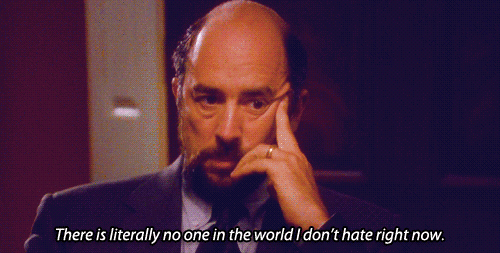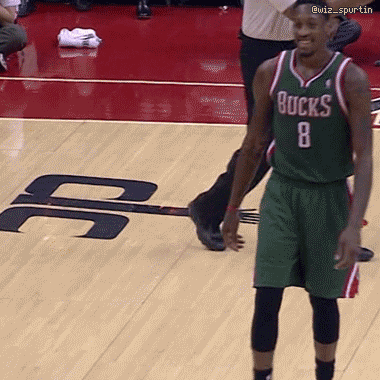Post#170 » by HurricaneKid » Wed Jan 10, 2018 5:59 pm
I just want to clear up a point:
WE CANNOT TRADE TELLY.
Here is why:
61. What are the rules for retired players? What if the player suffers a career-ending injury?
There's nothing binding about a player announcing his retirement. The player can still sign a new contract and continue playing (if he's not under contract), or return to his team (if he is still under contract) and resume his career.
The only exception to this is when a player is still under contract, wants to quit, and his team doesn't want to let him out of his contract. Under these circumstances the player can file for retirement with the league. The player is placed on the league's Voluntarily Retired list (see question number 79), forgoes his remaining salary, and cannot return to the league for one year. The latter requirement prevents players from using retirement as an underhanded way to change teams, and can be overridden with unanimous approval from all 30 teams. For example, guard Jason Williams signed with the LA Clippers in August 2008, then changed his mind the following month, announcing his retirement. He applied for reinstatement in early 2009, but his request was denied by a vote of 24-6. Williams later signed with the Orlando Magic once the one-year anniversary of his retirement announcement had passed.
Any money paid to a player is included in team salary, even if the player is no longer playing or has retired.
There is one exception whereby a player can continue to receive his salary, but the salary is excluded from team salary. This is when a player suffers a career-ending injury or illness. The team must waive the player, and can apply for this salary exclusion following a waiting period. Only the player's team at the time the injury or illness was discovered (or reasonably should have been discovered) can apply for this salary exclusion.
The team can apply to have the player's salary excluded starting on the first anniversary of the player's last regular season or playoff game, and not before the one-year anniversary of the first regular season game for which the player was on the team's roster under his current contract. If the player played in fewer than 10 games in the last season in which he played, the team can apply on the one-year anniversary of the player's last regular season or playoff game, or 60 days after his last game in the current season, whichever is later.
The determination as to whether an injury or illness is career ending is made by a physician jointly selected by the league and players association, or by a Fitness to Play panel (see question number 62). The determination is based on whether the injury or illness will prevent the player from playing for the remainder of his career, or if it is severe enough that continuing to play constitutes a medically unacceptable risk.
If the injury exclusion is granted, the player's salary is removed from the team salary immediately.
If the player later "proves the doctors wrong" and resumes his career, then his salary is returned to the team salary when he plays in his 25th game1 in any one season, for any team. This allows a player to attempt to resume his career without affecting his previous team unless his comeback is ultimately successful.2 If the 25th game was a playoff game, then the player's salary is returned to the cap effective on the date of the team's last regular season game (i.e., the returned salary counts toward the luxury tax).
There are a few additional nuances to the salary exclusion:
•If the player resumes his career and his salary is returned to the team salary, the team can re-apply for the salary exclusion under the same rules (including the rules for the waiting period).
•If a player retires, even for medical reasons, his team does not receive a salary cap exception to acquire a replacement player.
•A team can only apply for salary exclusion during the original term of a contract. If the player was waived and his salary stretched (see question number 64), the team must apply for the salary exclusion before the contract's original end date.
•A team cannot apply for this salary exclusion if they have applied for a Disabled Player exception (see question number 25) that season, whether the exception was granted or not.
•If this salary exclusion is granted, the team cannot re-sign or re-acquire the player at any time.
•This salary exclusion can be used when a player dies while under contract.
1 They count only regular season and playoff games, and do not count preseason games. This was not specified prior to the 2011 CBA. During the 2008-09 season Darius Miles (whose salary was excluded from Portland's cap) played in 10 games for Boston and Memphis (the limit was 10 games at the time), which included preseason games. The league counted the preseason games toward the total, and returned Miles' salary to Portland's cap.
2 If the player's salary was excluded because a Fitness to Play panel determined that the player had a materially elevated risk of death, then the player's salary doesn't go back onto the team salary even if he plays in 25 games.
Miami just went through it with Bosh and was unable to trade him because the team on the other end of the transaction wouldn't have been able to exclude his salary.
fishnc wrote:If I had a gun with two bullets and I was in a room with Hitler, Bin Laden, and LeBron, I would shoot LeBron twice.

















